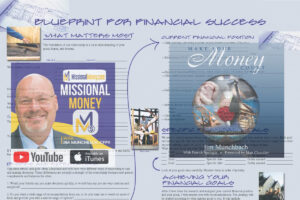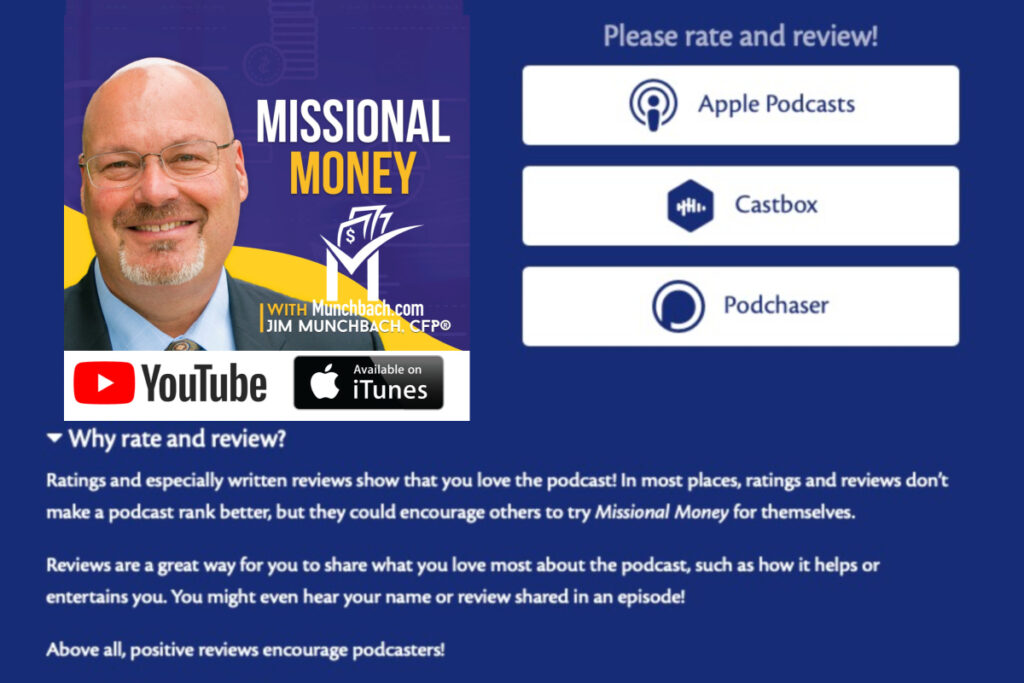3 Goals for The Capstone Assignment
-
Earn 200 of the 950 Points Needed for an “A”
-
Answer the Question: What is a Financial Plan
-
Create a Lifelong Conversation about Personal Finance
Capstone Assignment Review Video
The Capstone Report
-
Before
-
After
-
Posted in Money Study Group Course Material
The Essential Elements
-
Watch The Capstone Assignment Video
-
Review the Course Material Posted in Money Study Group
-
Create Your Final Report and Upload in BB
-
For each of the Essential Elements listed below, include the following: — Screen Shot — Tell me What Changes You Made (Before and After) — Address the specific question listed next to each element
Balance Sheet
-
Assets
-
Liabilities
-
Net Worth
Budget
-
Be sure to include your detailed budget in the screenshot.
-
If you did not link your credit/debit card, explain why and be sure you’ve added the detailed budget items manually (25 points).
Debt and Debt Strategy
Refer back to your Credit Crush Assignment if you need a refresher. Describe your Debt Payment Strategy.
Asset Allocation
— What did you learn about Asset Allocation in this course and how did you apply this new information in your financial plan? — How much did Asset Allocation change your Probability of Success?
Tax Allocation
— In general, what did you learn this semester about Tax Allocation? — What is Tax Allocation? — How much did Tax Allocation change your Probability of Success?
Holdings
— Discuss the actual holdings you selected for your portfolio. — Explain the difference between a holding and an asset class. — Explain the difference between a holding and Type of Account. — Explain the difference between a holding and Type of Investment.
Retirement Analysis
— What was your Probability of Success before? — What was your Probability of Success after? — Which change in your plan “moved the needle” the most in terms of your Probability of Success?
Cash Flow
Summary Screen
— In reviewing your Cash Flow Summary Screen, was there anything you saw that would raise a question when I review it?
— Spend a few minutes trying to figure out how to answer the question I’m going to ask about your Cash Flow Summary.
— If it all looks great, move on to the next screen.
Net Worth
— In reviewing your Net Worth Summary Screen, was there anything you saw that would raise a question when I review it? — Spend a few minutes trying to figure out how to answer the question I’m going to ask about your Net WorthSummary. — If it all looks great, move on to the next screen.
Invested Assets
— In reviewing your Invested Assets Summary Screen, was there anything you saw that would raise a question when I review it? — Spend a few minutes trying to figure out how to answer the question I’m going to ask about your Invested Assets Summary. — If it all looks great, move on to the next screen.
Accounts
— In reviewing your Accounts Summary Screen, was there anything you saw that would raise a question when I review it? — Spend a few minutes trying to figure out how to answer the question I’m going to ask about your Accounts Summary. — If it all looks great, move on to the next screen.
Insurance
Describe your insurance program in each of the following areas. — What insurance did you add to your plan and why? — What insurance should you add to your plan and why?
-
Life
-
Disability
-
Long-Term Care
-
Property and Casualty *25 Point deduction if you failed to add auto and home insurance as outlined in your previous assignment.
Profile Review
*Take a few minutes to review your overall plan profile and comment as outlined below for each screen. Don’t worry, you won’t be graded on your comments — but each screen needs to be included in your Capstone Report!!
Net Worth
*What accounts, loans, or insurance would you add to your plan in real life? Remember, this is an important part of your planning portal. Goals — Do you feel like you have a good set of goals? — What goals would you add in real life? — What goals did you want to include if money were no object?
Income
Did you include income from your “Dream Job”? If your income is too high or too low, please tell me why.
Savings
What do you think about your overall savings plan? Is it realistic? What might you change in real life once you start working full-time?
Expenses
What do you think about the expenses listed in your plan? Are they realistic? What might you change in your budget in real life once you start working full-time?
Family
Tell me about your family in the future. Do you believe it would be helpful to have a financial plan in real life once you start your family?
Final Element — What is a Financial Plan
*Now that you’ve completed the Capstone Assignment, think back to the question you answered early in the semester: What is a Financial Plan — to you?How would you answer that question today?
Don’t Forget to Upload ONE PDF to BB
In this assignment, be sure to upload One PDF to BB. Thank you for completing the Capstone Assignment.
Course Certifications
Certificate of Participation
*For students who completed Personal Finance Online.
Certificate of Completion
— For students who completed Personal Finance Online, and — Demonstrated a basic understanding of the financial planning process.
-
12 Month Access to Online Planning Portal
-
Access to Future Money Study Group Courses
-
At current student pricing.
Certificate of Excellence
— For students who completed Personal Finance Online, and — Demonstrated proficiency in the financial planning process.
-
12 Month Access to Online Planning Portal
-
Access to Future Money Study Group Courses
-
At current student pricing.
-
Ability to Sponsor Students/Friends/Family — Certificate of Excellence holders are invited to Sponsor Students/Friends/Family at no additional cost for the Certificate holder. — Students/Friends/Family are entitled to current student pricing. — Sponsor Students/Friends/Family will receive 12 months access to planning portal.
Essential Elements Listed for Quick Review
Summary of User Input
Your financial plan is based on the information you entered into your planning portal. This is a critical section of your plan so please take a few minutes to review and update this section.
-
Family
-
Expenses
-
Savings
-
Income
-
Goals
-
Retirement Goals
-
Retirement Age
-
Annual Retirement Health Care Costs
-
Annual retirement Long term care Cost
-
Long term care duration
-
Other Goals
-
Monthly Retirement Expense
-
Cars
-
New Home
-
Vacation/Travel
-
Wedding
-
Gift to Charity
-
This is where your goals are listed. *The goals you set for yourself will be a big driver of your financial plan. Goals are basically expenses and your “financial plan” will calculate the cost to fund your goals which will impact your probability of success in terms of your main goal of Retirement.
-
-
Net Worth
Net Worth is the main place you will update your plan with assets and liabilities and insurance. This is also where you will link your credit cards, debit cards, and any accounts that you want to be reflected in your financial plan.
Dashboard
-
Balance Sheet
Balance Sheet Details. Just like any well-run business, your personal balance sheet should always be in check. Your net worth is the difference between your assets and your liabilities. Assets are everything you own such as your home and investments, and liabilities are everything you owe such as the balance on your mortgage and other debt.
Net Worth
- Assets
- Liabilities
- Balance Sheet Details
Liquidity
If a job loss or other financial hardship arises, a liquid emergency fund can help pay bills without dipping into savings or using high interest credit or loans. Your emergency fund should include easily accessible funds like cash and money market funds.
-
Liquidity analysis
-
Your Liquidity
Budget
In order to manage your expenses, you need to set budget goals and track how your expenses compare. You can set a budget for different categories based on prior expenses and monitor how well you stick to the budget. – Budgeting Summary – Budgeting Details – Income – Expense – Transactions from Linked Credig/Debit Card(s) Review the budget for individual categories vs the average expenses for the past three full months.
Debt and Debt Management what strategy did you choose and why?
- Balance of selected debt
- Payment Priority
- Proposed payment strategy
- Debt Management Payments
Student Loan
Student Loans Summary: You can add on the Profile > Net Worth page. *Tasks are not activated in your plan at this time.
Investment what Asset Allocation did you choose and why?
- Current allocation
- Target allocation
- Equity / Fixed Income
Annual return: 4% Standard deviation: 5.9% Target allocation Moderate 60% / 40% Equity / Fixed Income Annual return: 7.5% Standard deviation: 10.2%
Sector and Style
Equity investments can be categorized according to sectors. They are also each assigned a style based on their market cap and valuation. It is important to construct a well-diversified equity portfolio across sectors and styles that balances risk with return, while at the same time meeting your specific financial goals. Sector and Style data is provided by Morningstar.
-
Equity sector comparison
-
Equity style comparison
-
Concentration *Concentrated Position: A portfolio that is too heavy in just one security poses a substantial downside risk. This is often defined as “putting all your eggs in one basket.” Your concentration position is identified as individual stocks that exceed 5% of the entire portfolio.
###Tax Allocation what types of account did you choose and why? *Tax deferred asset include assets in your 401(k)/403(b), Traditional IRA, SEP IRA, Simple IRA and other accounts you specified as tax deferred. Tax free assets include assets in your Roth 401(k), Roth IRA, 529, Health saving accounts and other account you specified as tax free accounts. The taxability of the aforementioned are based on a variety of factors. Please consult a qualified tax professional to discuss your individual tax situation.
Tax allocation summary
-
Taxable asset
-
Tax deferred asset
-
Tax free asset
*Holdings: What are the actual investments in your accounts? Do you own Apple? Amazon? A couple of Mutual Funds or ETFs?
Retirement Analysis What is your Probability of Success?
*Use of a detailed retirement analysis tool is important to help determine whether you are on track for a successful retirement. Monte Carlo simulations, stress tests, and viewing specific scenarios can help you evaluate your retirement plans and see the impact of potential changes.
Monte Carlo Simulations
*This section of the report displays the results of Monte Carlo simulations run on the current and proposed plans. The results are derived from 1000 simulations and the specified retirement cash flows. The chart of probability of success represents the overall likelihood of success in both the current and proposed plan.
Retirement Analysis What Action Items Did You Choose and Why?
-
What Are Your Financial goals?
-
Retirement Age
-
Monthly Retirement Income
-
Discuss Your Income, savings and expenses
-
-
What Retirement Strategies Did you Choose?
-
Asset allocation
-
Social Security
-
Debt strategy
-
Student loan strategy
-
Distribution strategy
-
Retirement Analysis Details – Proposed
*This section of the report displays the results of Monte Carlo simulations run on the current and proposed plans. The results are derived from 1000 simulations and the specified retirement cash flows. The first chart illustrates the likelihood of achieving a given net worth over time.
###Stress Test Even the best retirement plans will be exposed to various risks. These risks can include market volatility, taxation, low Social Security payments, longevity, inflation, and short and long-term health care expenses. It is important to both anticipate and plan for such risks. Doing so can substantially increase your probability of success.
Stress test assumptions
This section of the report displays the results of Monte Carlo simulations run on various stressed tests. The results are derived from 1000 simulations and the specified retirement cash flows. The probability of success represents the overall likelihood of success in various stress tests.
-
Equity markets crash by 20%
-
Inflation will be higher by 1%
-
Tax expense will be higher by 20%
-
Health care cost will be higher by 20%
-
Social Security will be reduced by 20%
-
You (and your spouse) will live ???
Social Security
Optimal Social Security Strategy. There are as many as 700 different Social Security filing strategies that can be tested in order to identify the optimal Social Security benefit for your specific retirement needs. Compare your optimal strategy to others to see the potential benefit of optimization. What will you do to obtain maximum Social Security benefits?
Medicare
It is important to select the Medicare options that meet your needs and enroll in Medicare on time. Delayed enrollment can result in penalties and coverage gaps.
-
Medicare Coverage
-
Medicare Enrollment
-
Medicare Tips
Cash Flows and Net Worth
-
Review and Discuss Your Cash Flows and Net Worth Projections.
-
Income Inflows
-
Planned Distribution
-
Other Inflows
-
Expenses
-
Goals
-
Tax Payments
-
Planned Savings
-
Net Worth
-
Invested Assets
-
Accounts
-
Ending balance by accounts
-
-
Insurance Planning — What Insurance did you choose in your plan and why?
-
Life Insurance
-
Disability
-
Long-Term Care
-
Property and Casualty (20 point deduction if this not included)
-
Home
-
Car
-
PLUP
-
Retirement Tax Planning Strategies (FYI)
*Taxes can have a significant impact on your future and are an important factor in financial planning. Estimated taxes below are based on your inputs and your proposed retirement plan, using current tax rates and methodologies.
-
Tax Estimates
-
Distributions
-
Proposed Distribution Strategies
User Profile — Review and Update!
-
Net Worth
-
Goals
-
Income
-
Savings
-
Expenses
-
Family








